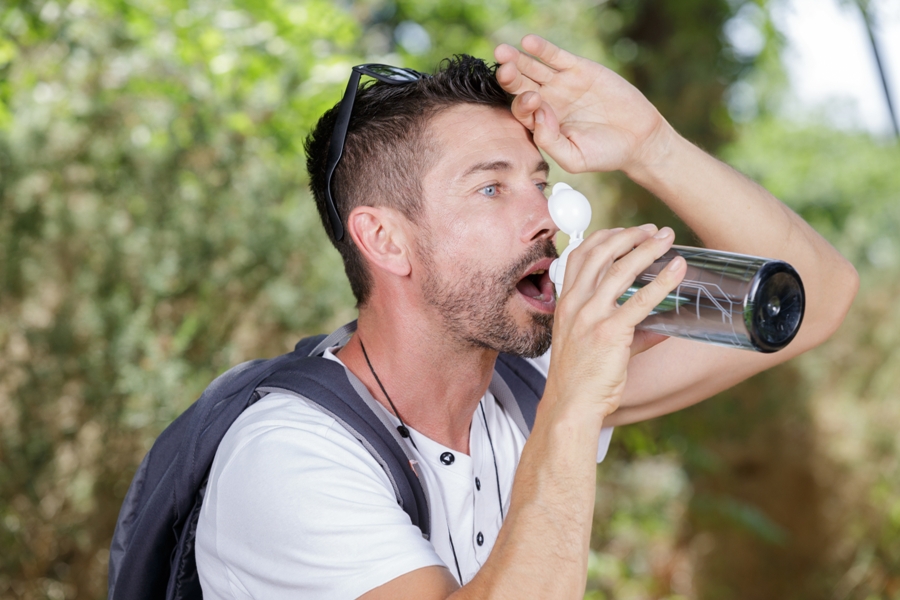Summer is rapidly approaching and if you want to enjoy it to the full, you’re going to have to start thinking about dehydration.
Dehydration is a real risk in the summer, especially during the increasingly long and intense heat waves we’re coming to expect a feature of the British summertime, so today we’re taking a look at the hydration issues that you need to be aware of this summer (including answering the important question “How do you test for dehydration?”).
Dehydration Causes
We’re dehydrating all the time. Our bodies are constantly drawing on our fluid reserves for all sorts of vital processes throughout the body, from filtering out toxins to maintaining body temperature to keeping your cells taught and rigid. Even simply exhaling carries water vapour!
This means that if you don’t replenish your fluid reserves, you’ll dehydrate over time. Hot weather increases the risk of dehydration, whether you’re at home or on holiday, and the more active you are the faster you dehydrate. Summer time also brings it with numerous distracting activities which can make it harder to keep up with your hydration routine, whether it’s swimming in the sea, walking or simply sunbathing.
Dehydration Effects
When you begin to get dehydrated, symptoms begin with a sense of thirst and escalate to the sensation of a dry throat, mouth and lips. As it continues more effects are felt by your body – headaches, dizziness and difficulty concentrating, escalating to dizziness, nausea and confusion. Dehydration can even result in unconsciousness if left unchecked.
If you want to quickly test for dehydration, try pinching the skin on the back of your hand. If it snaps back quickly, you likely aren’t dehydrated. If it takes a while to return to normal, then you may be dehydrated – because dehydration affects your skin elasticity.
Rehydrating
Rather than rehydrating, the best thing you can do is to keep regularly hydrated – don’t let dehydration start! Whatever you’re doing, whether you’re on holiday or at home, enduring a heatwave or soaking up the rays on the beach, make your hydration an ongoing priority.
If you do need to rehydrate then make sure you’re thinking about your electrolytes. These are the soluble salts dissolved in your fluid supplies used for important jobs throughout your body, including balancing the fluid levels between your cells and blood-flow.
If you drink too much water without also topping up your electrolytes you dilute the supplies you have remaining, which can lead to a dangerous state called water intoxication. Intersperse your water with a sports rehydration drink or a rehydration sachet to keep your electrolytes topped up and ensure you enjoy your summer!
